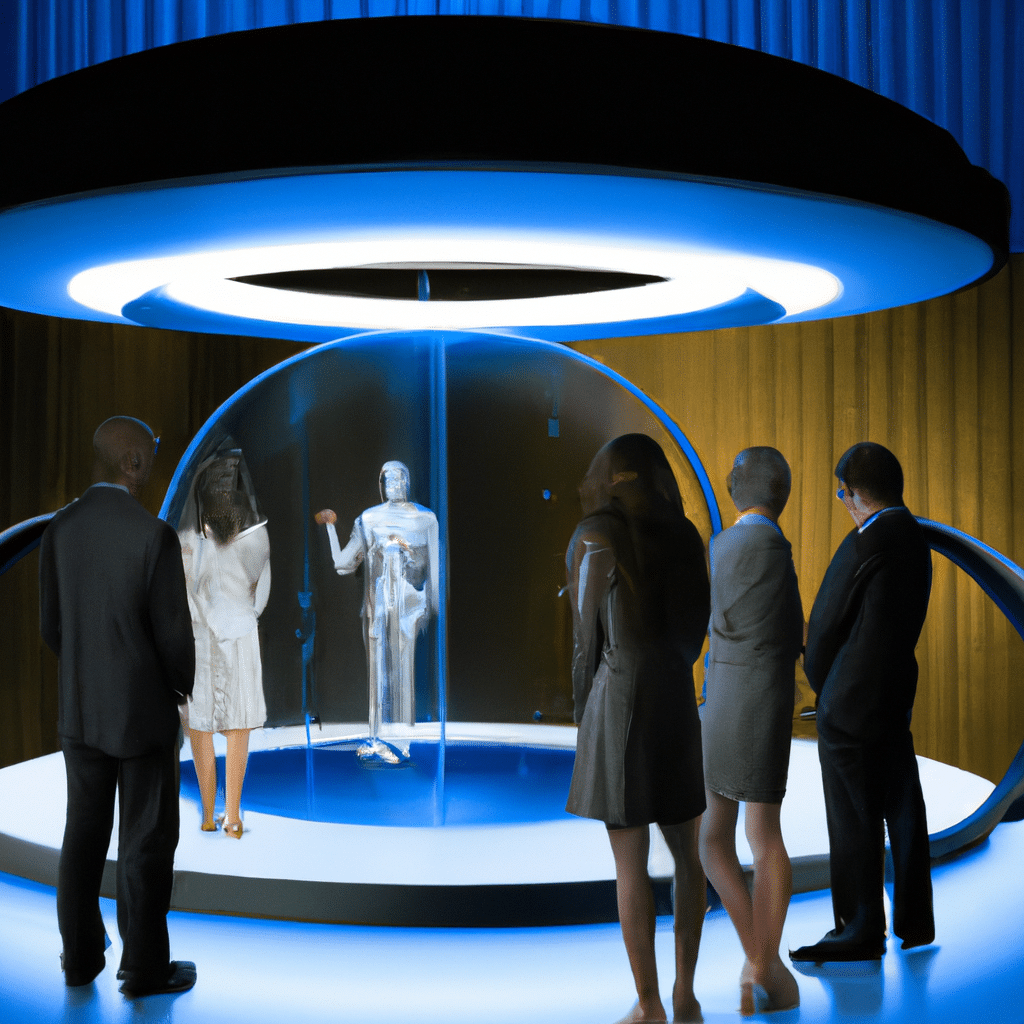The Future of E-commerce with AI Technology
E-commerce has been on the rise since its inception, and the integration of artificial intelligence (AI) technology has only accelerated its growth. AI has changed the way businesses operate and interact with customers, and its impact on e-commerce is no different. In this article, we will explore the future of e-commerce with AI technology, how it will impact the industry, and what businesses can do to stay ahead of the curve.

The Rise of AI in E-commerce
Artificial intelligence has been making waves in almost every industry, and e-commerce is no exception. AI has been used to improve the customer experience by providing personalized recommendations, chatbots for customer service, and even virtual try-on for clothing and makeup.
AI has also been used to improve logistics and supply chain management. Predictive analytics and machine learning algorithms have been used to optimize inventory management, reduce shipping times, and improve order accuracy.
AI-Powered Personalization
One of the most significant impacts of AI on e-commerce has been the ability to provide personalized product recommendations. AI algorithms analyze customer data such as purchase history, browsing behavior, and search history to provide tailored product recommendations.
Personalization not only improves the customer experience but also increases revenue. A study by Accenture found that 75% of consumers are more likely to buy from a retailer that recognizes them by name, recommends products based on their past purchases, or knows their purchase history.
Chatbots for Customer Service
Chatbots have been gaining popularity in recent years, and e-commerce is no exception. Chatbots can handle routine customer service inquiries such as order tracking, returns, and exchanges, freeing up human customer service agents to handle more complex issues.
Chatbots also provide 24/7 customer service, which is a significant advantage for e-commerce businesses that operate globally. AI-powered chatbots can even learn from past interactions to provide personalized responses to customers.
Virtual Try-On
Virtual try-on technology has been a game-changer for the fashion and beauty industry. AI-powered virtual try-on allows customers to see how clothing, makeup, and accessories will look on them before making a purchase.
Virtual try-on not only improves the customer experience but also reduces returns and increases customer satisfaction. According to a study by Perfect Corp, retailers that offer virtual try-on have seen a 2-3x increase in conversions and a 30% reduction in returns.
AI in Logistics and Supply Chain Management
AI has also been used to improve logistics and supply chain management in e-commerce. Predictive analytics and machine learning algorithms have been used to optimize inventory management, reduce shipping times, and improve order accuracy.
AI algorithms can analyze past sales data to predict future demand and adjust inventory levels accordingly. This reduces the risk of stockouts and overstocking, which can lead to lost sales and higher costs.
AI-powered routing algorithms can also optimize delivery routes to reduce shipping times and lower costs. This not only improves the customer experience but also reduces shipping costs for e-commerce businesses.
Staying Ahead of the Curve
As AI continues to transform e-commerce, it is essential for businesses to stay ahead of the curve. Here are some tips for businesses to stay ahead in the age of AI:
-
Embrace Personalization: Personalization is becoming the norm in e-commerce, and businesses that fail to offer personalized experiences risk falling behind. Use AI-powered algorithms to provide tailored product recommendations and personalized customer service.
-
Invest in Chatbots: Chatbots are becoming an increasingly popular way to handle routine customer service inquiries. Invest in AI-powered chatbots to provide 24/7 customer service and free up human agents to handle more complex issues.
-
Offer Virtual Try-On: Virtual try-on technology has been a game-changer for the fashion and beauty industry. Offer virtual try-on to improve the customer experience and reduce returns.
-
Optimize Logistics and Supply Chain: AI-powered logistics and supply chain management can reduce costs and improve the customer experience. Invest in predictive analytics and machine learning algorithms to optimize inventory management and shipping routes.
Conclusion
AI technology has transformed e-commerce and will continue to do so in the future. Personalization, chatbots, virtual try-on, and logistics optimization are just a few of the ways that AI is impacting the industry. Businesses that embrace AI and stay ahead of the curve will be well-positioned to succeed in the age of e-commerce with AI technology.












